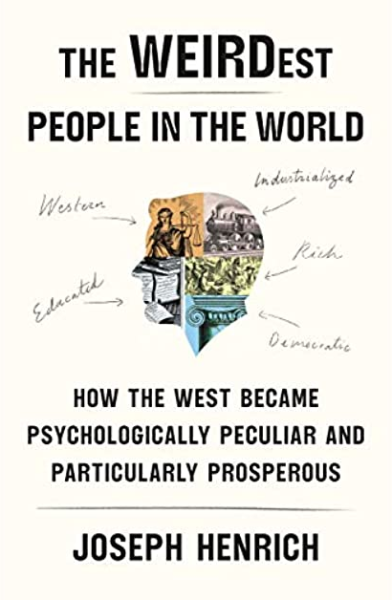Brendan O’Neill calls out the New Atheist community for their wide adoption of the trans ideology-cum-faith:
We are living through a great showdown between hysteria and reason. On one side stand the adherents to the cult of transgenderism, hawking their hocus pocus about gendered souls and self-authentication through castration. On the other side stand those of us who know that biology is real, and that every cell in the human body is sexed, and that a man is as likely to become a woman as that chalice of wine is to become the blood of Christ during Mass (apologies, Catholics).
You’ll never guess which side some New Atheists are taking in this clash between delusion and truth. The crazy side. The side that says a bloke with a beard and balls can literally be a lesbian. Which is infinitely more cranky than the idea that a bloke with a beard and balls can literally be the Son of God. How did rationalist bros, those secularists on steroids, those Dawkins acolytes whose hobby for years was to make fun of the faithful, become devotees of such a strange, post-truth sect?
One by one, atheists are falling at the altar of trans. This week a Twitterfeed called The New Atheists slammed Richard Dawkins for becoming a TERF. Dawkins is a rarity in the new rationalist ranks: he thinks people with penises are men, not women, just as bread is bread, not the body of Christ. He is “utterly confused”, decreed his angry apostates. Biology “isn’t black and white, it’s a full spectrum of colour just like a rainbow”, they said. This hippyish belief that humans can pick their sex from a multicoloured smorgasbord is entirely an article of faith, of course, not science. Behold rationalism’s turncoats.
We’ve witnessed Neil deGrasse Tyson, America’s best-known scientist, bow to the creed of gender-as-feeling. In a TikTok video he said “XX/XY chromosomes are insufficient” when it comes to reading someone’s sex, because what people feel matters along with their biology. So someone might feel mostly female one day but “80 per cent male” the next, which means they’ll “remove the make-up” and “wear a muscle shirt”. Sir, that’s cross-dressing; it does nothing to refute the truth of chromosomes, which absolutely do tell us what sex a person is. As destransitioner Chloe Cole said to Tyson, you’re “confusing basic human biology with cosmetics”.
We’ve seen Matt Dillahunty, a leading American atheist, promote the mystic cry that there’s a difference between “what your chromosomes are” and your “gender identity”. “Transwomen are women”, he piously declares, perhaps keen to prove that while he might be fond of bashing the old religions, he has not one cross or blasphemous word to say about the new religion. Well, no one wants to be excommunicated from polite society.
Stephen Fry is another godless lover of science who appears to have converted to the trans belief. Phillip Pullman, Stewart Lee and others who were once noisy cheerleaders for rationalism are likewise strikingly reserved on this new ideology, this devotional movement which, among other things, invites young women to submit themselves to bodily mortification in order that they might transubstantiate into “men”. Seems like something a rationalist should question.








